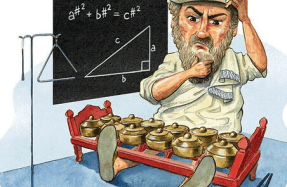

The Russian-born pianist tells Michael Church about stretching the bounds of a phenomenal natural talent that happily embraces everything from classical music to jazz
When a revolutionary new piano design, the Maene-Viñoly Concert Grand, needed to be test-driven last year, its creators chose Kirill Gerstein. For wherever this inspirational figure leads, people tend to follow, correctly assuming that whatever he does will in some way be original.
We saw this in the pandemic. He was not the only musician to invite us into their living room, but no one came near his tally of online guests, because what he offered was much more than a free recital: each week he hosted a musical seminar – all now archived and available to the public – with speakers not only from the world of music, but also from architecture, choreography and philosophy. ‘They certainly haven’t replaced live music,’ he says of those online events; ‘but they did allow us to bring together interesting people from all over Europe. For example, it was nice to see Steven Isserlis in his kitchen, flipping over the pages as he explained Beethoven’s




